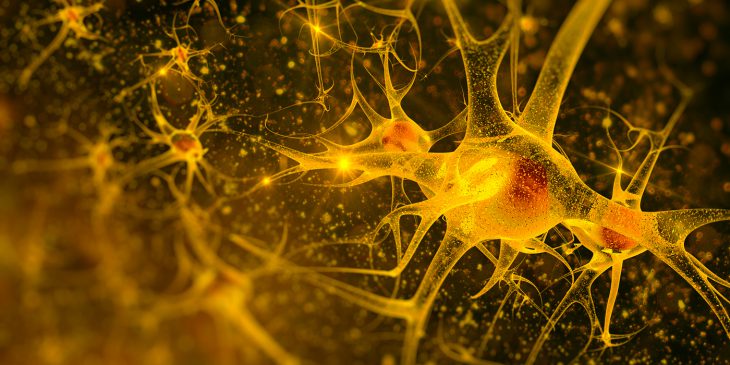Dr. Peter Strick, scientific director of the University of Pittsburgh Brain Institute, has been selected to receive a $6 million, five-year 2018 National Institutes of Health Director’s Transformative Research Award for a groundbreaking project that aims to identify how the brain influences, and sometimes controls, the function of the immune, cardiovascular and gastrointestinal systems.
Strick and his team will explore the anatomical basis of the “brain-body” connection and establish a structural framework for conditions now often identified as psychosomatic.
“Patients frequently complain to doctors of symptoms — some serious – that appear to have no biological basis,” Strick said. “Sometimes these symptoms are dismissed as being imaginary or ‘all in their heads.’ That last part is actually true, because your brain is in your head. We intend to demonstrate the neural pathways that enable specific areas of the brain to influence the function of your heart, your digestion and organs that contribute to immune function.”
This research will support better understanding and treatment of illnesses like irritable bowel syndrome, fibromyalgia and stress-related heart disease among others, he added.
Strick, who is also the Thomas Detre Professor and Chair of Neurobiology at the Pitt School of Medicine, is a pioneer in the use of rabies virus to trace neural pathways, and will apply this method to map the complex neural networks that travel between the brain and organs such as the heart, stomach and spleen in non-human primates. The project will also develop new tools for the large scale analysis of circuits in the primate brain which can be used by the larger neuroscience community.
Earlier this year, Strick received the American Psychosomatic Society’s 2018 Paul D. MacLean Award for Outstanding Research in Psychosomatic Medicine for his research on the brain networks that influence the adrenal medulla, our “first responder” in situations that require “fight or flight.”
Co-investigators on the new NIH grant include Dr. Richard Dum, research associate professor of neurobiology, and Dr. David Levinthal, assistant professor of gastroenterology, hepatology and nutrition, both of the Pitt School of Medicine; and Dr. Partha Mitra, of Cold Spring Harbor Laboratory.









